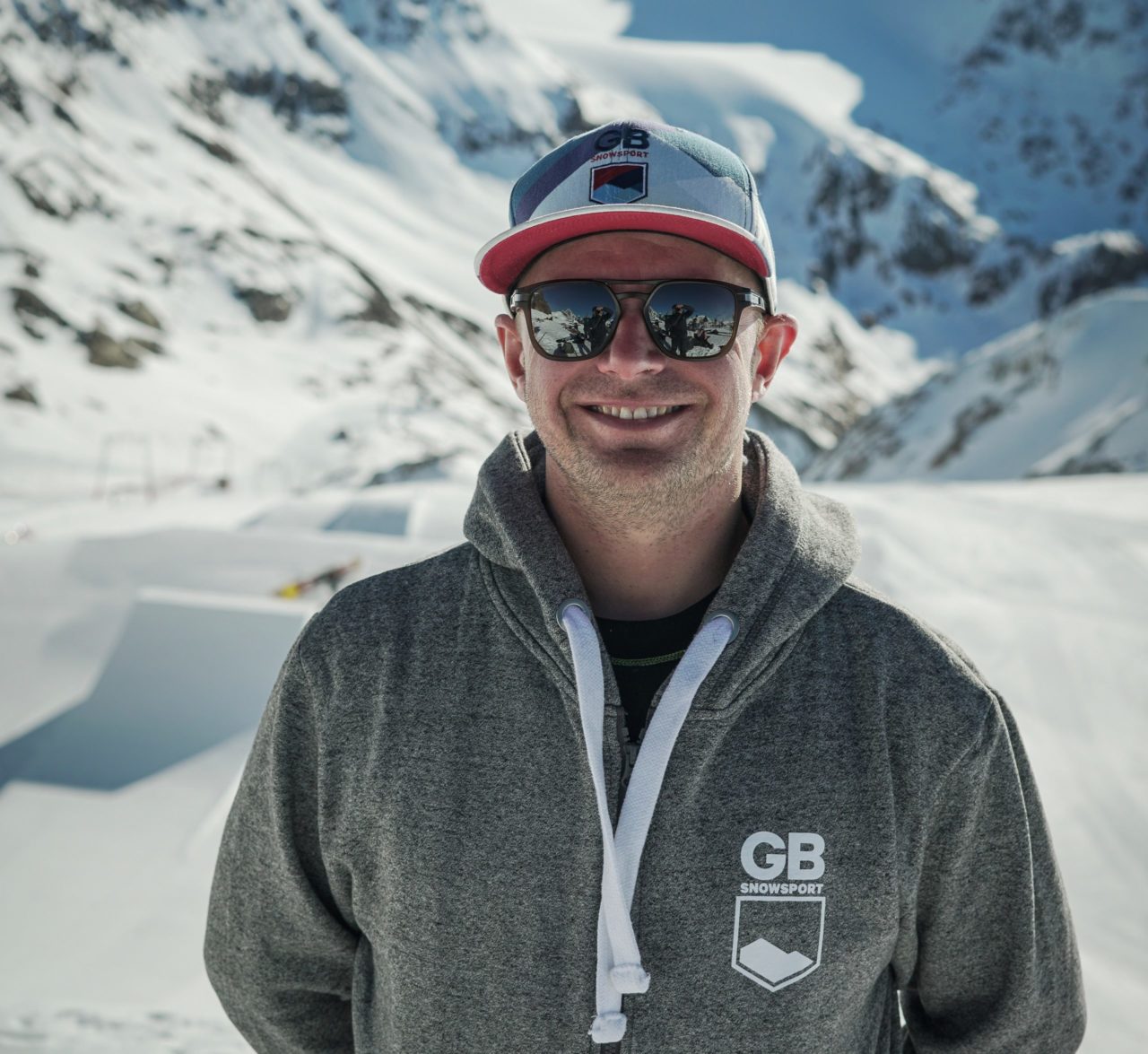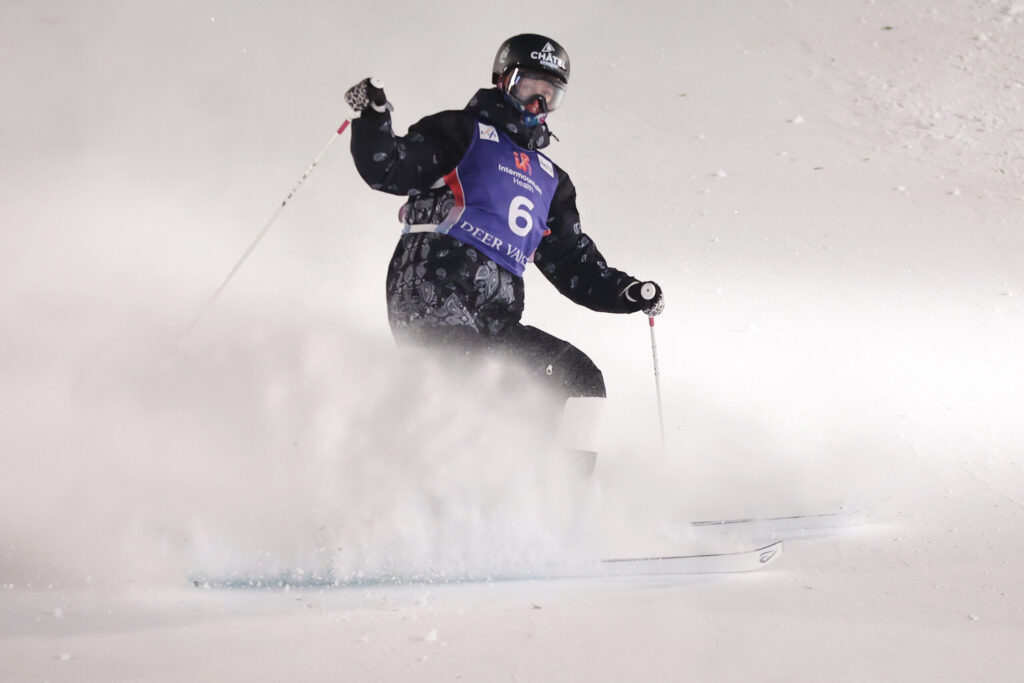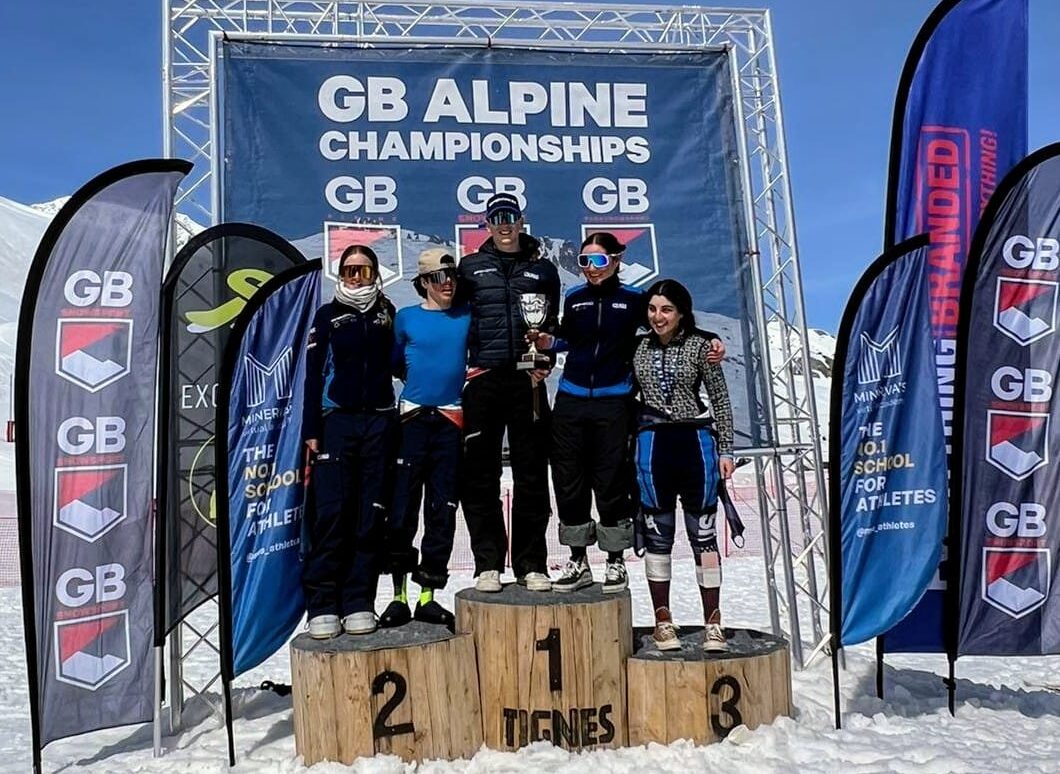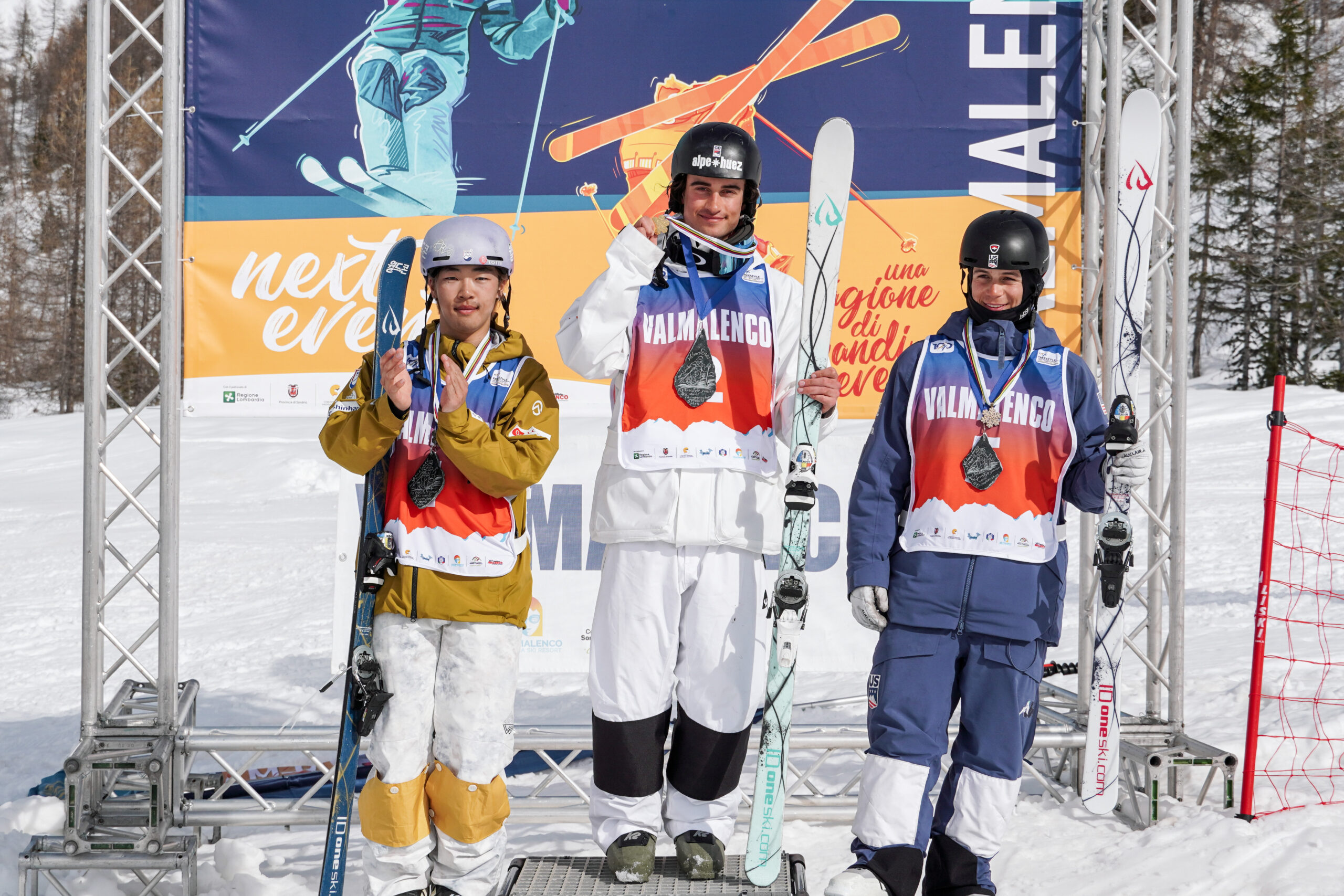
“There’s no better feeling than seeing athletes you’ve worked with from such a young age succeed”
Earlier this summer, we sat down with GB Snowsport Head Coach, Pat Sharples, to discuss last year, the season ahead, and pre-season plans for the GB Snowsport teams. In a wide-ranging interview, Pat touched on issues from the future of the British pathway to the impacts of climate change on world class skiing and snowboarding.
Catch up with the first part of Pat’s interview today and over on our Instagram channel, with part two coming on Monday.
What did last season mean to you personally with what everyone achieved and all the results we had?
Last season was a big one for us, it really was. The first year after Beijing 2022, it was a World Championships year, an incredibly important year. All of us wanted to have a good year right across the board, all of our disciplines Olympic and Para.
Summer training leading up to last year was quite challenging, with the glaciers closing and not having our regular locations where we could train, so we weren’t quite sure how it was going to pan out, but as we got into October and November, we were pretty pleased with what training we managed to get. The coaches were happy with where the athletes got to, and it ended up being one of the best winter seasons we’ve ever had on record and that’s across Olympic and Para.
We had some new, young athletes on the team competing at the World Championships for the first time, including Mia Brookes who ended up becoming the World Champion at her first ever World Championships in Slopestyle with an absolute great, groundbreaking performance. But there were plenty of other highlights, with Charlotte Bankes and Huw Nightingale in the Team Snowboard Cross event winning the gold there, and Zoe Atkin getting silver too [in Freeski Halfpipe].
Other major events too that really stuck out to me were the X Games in Aspen; that, to us, was like the Olympics before Freeski and Freestyle Snowboard were in the Olympics, and to do well in that event is still one of the big highlights for the athletes. So, Zoe Atkin taking the gold there in Halfpipe and Kirsty Muir getting two podiums, bronzes in Slopestyle and Big Air, that was just huge.
Para was equally good. We went into the season thinking that we were in a pretty good place with all our athletes, however we did have a few early season injuries which made it quite difficult to go in in the way we hoped we would. Some of our top athletes did great, like Menna Fitzpatrick along with her Guide, Katie Guest, and Neil Simpson with a new Guide in Rob Poth who joined Neil for the first time, them taking the gold medal in Super Giant Slalom was superb.
Another standout was Scott Meenagh. Coming back from what’s been a challenging year for the Para Nordic team after that was cut from the World Class Programme, Scott continued to work with the coaches to prepare for the World Championships where he took that incredible silver medal, which was an amazing thing to see from him.
And Para Snowboard, the whole team absolutely smashed it. James Barnes-Miller, I think it was five World Cup gold medals and the Crystal Globe, same for Ollie Hill, many podiums as well as the Crystal Globe, and Nina Sparks with two medals at the World Championships: just an absolute dream of a year for all those guys.
There’s a lot more athletes as well who had personal bests; Makayla Gerken Schofield taking her first medal at a World Cup in Moguls, also a sixth place in the World Championships, and Ollie Davies a [World Cup] silver medal in Ski Cross which was the first medal we’ve ever had in that discipline, so right across the board the guys just absolutely smashed it.
You’ve seen a lot of those athletes come through, really from being kids to the world class athletes they are now. What’s that like personally, seeing that journey for some of those younger athletes who are really breaking through now at the highest level?
For me, and I think all of the other coaches a well, there’s no better feeling than seeing athletes you’ve worked with from such a young age, and worked so incredibly hard, succeed. And it’s not just them, it’s their families and everybody else who’s sacrificed so much to pursue this dream. When you see them making it on the big stage and performing at the highest level against the best in the world, it is the greatest feeling. And we had a lot of those moments this year – there was a lot.
It’s equally as good for everyone around that’s been a part of it to see all that hard work really paying off. Obviously mainly for the athletes, because that’s what they’re trying to do at the end of the day.
There’s quite a few new names and quite a few young athletes on this year’s squads. What’s your sense of some of those new characters coming into the squad? How exciting is that for you from a coaching perspective?
This year we’re going to be seeing some new athletes coming through into the main teams across all the different disciplines. Some really exciting young talent coming through. It’s great to see, because obviously our big focus in this cycle is the Milan-Cortina Games, but we’re looking beyond that. We want to continue doing this and being able to support our young talent coming through, and we have some amazing young athletes coming through now.
It’s not been easy within our pathway – it never has. Coming from a nation with no snow and with the challenges that we’re finding in Europe with the inconsistency, especially in the summer, being able to access glaciers like we did, it is getting tougher, it really is; there’s no denying that. So, when we do find talent, we need to do everything we can to support them and bring them into that main team and support them in the best way we can for the future.
The big challenge for us, and it’s something we’re going to have to work with Snowsport England, Scotland, and Wales on, is to continue to keep fighting to create better opportunities for people getting into snowsport in the UK so they get these opportunities as well. Like I said, it’s getting tougher, it’s not getting easier.
I think the ski and snowboard industry as it is, it’s not where it was ten years ago, especially in Freestyle. When Freeskiing and Freestyle Snowboarding really sort of came on the scene there was a big boom, a lot of companies and brands were investing into events and competitions and into young, upcoming athletes, and that’s not really there anymore or not to the level that it was, so there’s less opportunities. But we can’t give up that fight, we’ve got to keep pushing forward and keep inspiring more people to get involved in snowsport, and create stronger pathways so we’re seeing more kids coming through at the higher level.
You’re talking about a couple of things there that I think are quite important to get your perspective on. The first one is, we can’t escape it, climate change. The change in European conditions, we’ve got and a lot of people seeing this interview will know, a lot of our athletes this season in the southern hemisphere for pre-season. How much is the change in the climate around us having an impact on the plans that you and the other coaches are able to put in place, and the experience of athletes that are in training and competition?
This year at the end of the winter, when we were doing our programme and athlete reviews, and from our experiences from last year, we knew our plans were going to have to be very different to what they’ve ever been before. We’ve almost had to rule out relying on accessing any of the European glaciers, mainly because we can’t rely on the facilities being at the level we need because the glaciers are deteriorating incredibly fast and they’re not able to build the features we need; some of the glaciers are not opening at all anymore as well. So, this year, for the majority of our teams we agreed our plan a would be to go to the southern hemisphere and South America to access world class training facilities in winter conditions.
Obviously for us from Great Britain, one of our biggest challenges is we’re constantly travelling. We don’t have the mountains or the training facilities on our doorstep. We’re not like the swimming team or the cycling team where you can go 15 minutes from where you live and access world class training. We’ve never had that, but it’s getting tougher because we’re having to travel further away. However, saying that, it’s a part of what we do. We’re lucky we’re in a good position thanks to the support of UK Sport that help us and back us in doing this that we can travel to these places the other side of the world to continue to get training.
We also know that our summer period is the most important training time that we have all year round. We are away the majority of the winter, however the World Cup competition schedules are pretty full on, so you don’t get lots of opportunities for solid training blocks. You’re normally on a tour from one competition to the next, and by the end of March, April, you’re back into training again, so this summer training period is really crucial for all our athletes.
You also talked about the future of talent, the pathway, and the experiences of young people coming through the British system. And at the moment we all know we’re in the middle of a cost of living crisis, conditions are hard for people, discretionary spending is down, people’s decisions on what they’re going to do are changing. Today, recording this, it’s the first day of the state school summer holidays in the UK and I imagine a lot of parents are going to be making slightly different decisions about what to do with their kids than in previous years. How much does that worry of the expenditure involved in snowsport an issue when we think about the next generation of British skiers and snowboarders?
It’s a huge issue. Skiing or snowboarding is not cheap – it’s not. The dry slopes do a very, very good job making it affordable for anybody to go out there and have those taster lessons to get involved. To maintain that, to continue it weekly and monthly, it gets incredibly expensive. And the indoor snow centres are even more so. The biggest challenge then is there’s only so much we can do at these facilities and then you’ve got to be going abroad to train at the higher level, and I think that’s something else that’s making it tougher in our pathway as well, for getting people to be involved, because a lot of people just can’t afford to actually do that.
It’s something we’re not going to give in on. We still want to show and inspire kids to get involved in snowsports. I got involved through my local dry ski centre and that changed my life. I certainly wasn’t looking then to become an Olympic athlete or a coach or anything; I just did it for the fun of it and it’s ended up becoming a big part, well, pretty much my life and my career and everything else. You just never know where it’s going to take you.
We’re still really keen to get people into snowsport, giving people the opportunity that we’ve all had.
 Share
Share

